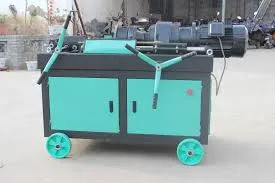
-
 Afrikaans
Afrikaans -
 Albanian
Albanian -
 Amharic
Amharic -
 Arabic
Arabic -
 Armenian
Armenian -
 Azerbaijani
Azerbaijani -
 Basque
Basque -
 Belarusian
Belarusian -
 Bengali
Bengali -
 Bosnian
Bosnian -
 Bulgarian
Bulgarian -
 Catalan
Catalan -
 Cebuano
Cebuano -
 Corsican
Corsican -
 Croatian
Croatian -
 Czech
Czech -
 Danish
Danish -
 Dutch
Dutch -
 English
English -
 Esperanto
Esperanto -
 Estonian
Estonian -
 Finnish
Finnish -
 French
French -
 Frisian
Frisian -
 Galician
Galician -
 Georgian
Georgian -
 German
German -
 Greek
Greek -
 Gujarati
Gujarati -
 Haitian Creole
Haitian Creole -
 hausa
hausa -
 hawaiian
hawaiian -
 Hebrew
Hebrew -
 Hindi
Hindi -
 Miao
Miao -
 Hungarian
Hungarian -
 Icelandic
Icelandic -
 igbo
igbo -
 Indonesian
Indonesian -
 irish
irish -
 Italian
Italian -
 Japanese
Japanese -
 Javanese
Javanese -
 Kannada
Kannada -
 kazakh
kazakh -
 Khmer
Khmer -
 Rwandese
Rwandese -
 Korean
Korean -
 Kurdish
Kurdish -
 Kyrgyz
Kyrgyz -
 Lao
Lao -
 Latin
Latin -
 Latvian
Latvian -
 Lithuanian
Lithuanian -
 Luxembourgish
Luxembourgish -
 Macedonian
Macedonian -
 Malgashi
Malgashi -
 Malay
Malay -
 Malayalam
Malayalam -
 Maltese
Maltese -
 Maori
Maori -
 Marathi
Marathi -
 Mongolian
Mongolian -
 Myanmar
Myanmar -
 Nepali
Nepali -
 Norwegian
Norwegian -
 Norwegian
Norwegian -
 Occitan
Occitan -
 Pashto
Pashto -
 Persian
Persian -
 Polish
Polish -
 Portuguese
Portuguese -
 Punjabi
Punjabi -
 Romanian
Romanian -
 Russian
Russian -
 Samoan
Samoan -
 Scottish Gaelic
Scottish Gaelic -
 Serbian
Serbian -
 Sesotho
Sesotho -
 Shona
Shona -
 Sindhi
Sindhi -
 Sinhala
Sinhala -
 Slovak
Slovak -
 Slovenian
Slovenian -
 Somali
Somali -
 Spanish
Spanish -
 Sundanese
Sundanese -
 Swahili
Swahili -
 Swedish
Swedish -
 Tagalog
Tagalog -
 Tajik
Tajik -
 Tamil
Tamil -
 Tatar
Tatar -
 Telugu
Telugu -
 Thai
Thai -
 Turkish
Turkish -
 Turkmen
Turkmen -
 Ukrainian
Ukrainian -
 Urdu
Urdu -
 Uighur
Uighur -
 Uzbek
Uzbek -
 Vietnamese
Vietnamese -
 Welsh
Welsh -
 Bantu
Bantu -
 Yiddish
Yiddish -
 Yoruba
Yoruba -
 Zulu
Zulu
CE Certified Thread Rolling Machine - High Precision & Efficiency
Understanding CE Certification for Thread Rolling Machines
The manufacturing industry is continually evolving, and with that evolution comes the necessity for stringent quality standards and safety regulations. One of the hallmark certifications that signal adherence to these standards in Europe is the CE mark. This certification is particularly crucial for machinery and equipment, including thread rolling machines, which play a vital role in the production of threaded components used in various applications, from automotive to aerospace.
What is CE Certification?
CE stands for Conformité Européenne, which translates to European Conformity. It indicates that a product has met the requirements of the relevant European directives and regulations. The CE mark is a declaration by the manufacturer that the product satisfies all essential safety, health, and environmental protection requirements. For thread rolling machines, this certification assures users that the equipment is designed and manufactured in compliance with Europe’s safety standards.
Importance of CE Certification for Thread Rolling Machines
1. Safety Assurance Thread rolling involves high pressure and precision, making safety paramount. CE certification ensures that a thread rolling machine has undergone rigorous testing to ensure operator safety and minimize the risk of accidents. This includes features like emergency stop buttons, protective guards, and proper shielding against potential hazards.
2. Market Access For manufacturers looking to market their thread rolling machines in Europe, CE certification is not just beneficial; it’s often mandatory. The absence of this certification can lead to barriers to entry in various European markets, limiting potential sales and partnerships.
3. Customer Confidence A CE mark enhances the credibility of the product, instilling confidence in customers. It signals that the manufacturer is committed to high-quality production standards and the safety of end-users, which can be a key differentiator in a competitive market.
4. Legal Compliance Compliance with CE marking involves adhering to various EU directives and regulations, such as the Machinery Directive, which offers a framework for safety requirements for machines. This helps manufacturers avoid potential legal issues related to product liability and compliance violations.
ce certification thread rolling machine

The Process of CE Certification
Obtaining CE certification involves several steps, including
- Risk Assessment Manufacturers must evaluate potential risks associated with the machine's operation and implement measures to mitigate those risks.
- Technical Documentation Compiling a technical file that includes design and manufacturing details, risk assessments, and compliance with specified standards.
- Conformity Assessment Depending on the machine's complexity and risk level, manufacturers may need to engage a notified body for third-party evaluation.
- Affixing the CE Mark Once all requirements are met, manufacturers can affix the CE mark and provide a Declaration of Conformity outlining compliance.
Conclusion
CE certification is a crucial aspect of the manufacturing and operation of thread rolling machines within the European market. It not only ensures safety and compliance but also enhances marketability and consumer trust. As global standards continue to tighten, understanding and implementing CE certification processes will remain vital for manufacturers aiming to thrive in competitive environments. Investing in quality and safety through CE certification ultimately benefits manufacturers, operators, and end-users alike, promoting a culture of excellence in the industry.
